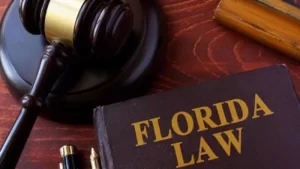
Florida’s statutes takes effect on the specific dates set out in the relevant constitutional amendments or in the laws adopted during each April Legislative Session, typically on July 1 or October 1.
As reported on September 28, 2021 Florida Trend (citing Florida News Service), one major development for Florida’s employers and workers was a constitutional amendment increasing the minimum wage from $8.65 per hour to $10, which equates to approximately $18,000 annually, with the rate for tipped workers increasing from $5.63 an hour to $6.98. The rate will further increase incrementally annually until September 30, 2026 when it reaches $15 an hour and $11.98 for tipped workers. The new provision continues an existing employer $3.02 tip credit.
As described in Florida Trend, several other new laws taking effect on October 1are:
- Electronic cigarettes (HB 1080): Creates a state regulatory framework for the sale of electronic cigarettes. The bill raises the State’s legal age to vape and smoke tobacco to 21, consistent with Federal law.
- Child welfare (SB 80): The measure makes wide-ranging changes in the child-welfare system on issues such as out-of-home placement, steps for reinstatement of parental rights and the process for transitioning youths out of foster care.
- Child safety (SB 252): The bill creates the “Child Safety Alarm Act,” which requires vehicles used by child-care facilities to be equipped with alarm systems that prompt drivers to ensure no children remain on board when the vehicles are parked.
- Crime Stoppers (HB 363): The bill makes it a third-degree felony to disclose protected communications provided to a Crime Stoppers organization.
- Specialty tags (SB 676): The measure makes a series of changes involving specialty license plates, including establishing an “Army of Occupation” design for veterans who served overseas in wars between May 9, 1945, and October 2, 1990.
- DNA (HB 833): The measure, in part, defines DNA samples as “exclusive property” of people submitting the samples and limits the use of the DNA for criminal databases unless people provide “express consent” for analysis.
- Written threats (HB 921): The bill expands and updates laws about written threats and cyberstalking, including threats involving mass shootings or terrorism.
- Corporate espionage (HB 1523): The measure, in part, creates second-degree felony charges for “trafficking in trade secrets,” with the charges bumped to first-degree felonies if the trafficking is aimed at benefiting foreign governments.
This series will continue to monitor statutory developments at the Federal and Florida levels.
=====================
To learn about Bogin, Munns & Munns’ scholarship programs.
=====================
To consult with an experienced business law lawyer today
855-780-9986
For more information, call Philip N. Kabler, Esq. of the Gainesville, FL office of Bogin, Munns & Munns, P.A. at (352) 332-7688, where he practices in the areas of business, real estate, banking, and equine law. He has taught business and real estate law courses at the University of Florida Warrington College of Business Administration and Levin College of Law. He is a member of the Greater Gainesville Chamber Board of Directors, and is the Immediate Past President of the Eighth Judicial Circuit Bar Association [www.8jcba.org], .
NOTICE: The article above is not intended to serve as legal, financial, or investment advice, and readers should not rely on it as such. It is offered only as general information. Readers should consult with an attorney regarding their legal matters, as every situation is unique.
Call or Submit Our Consultation Request Form Today





